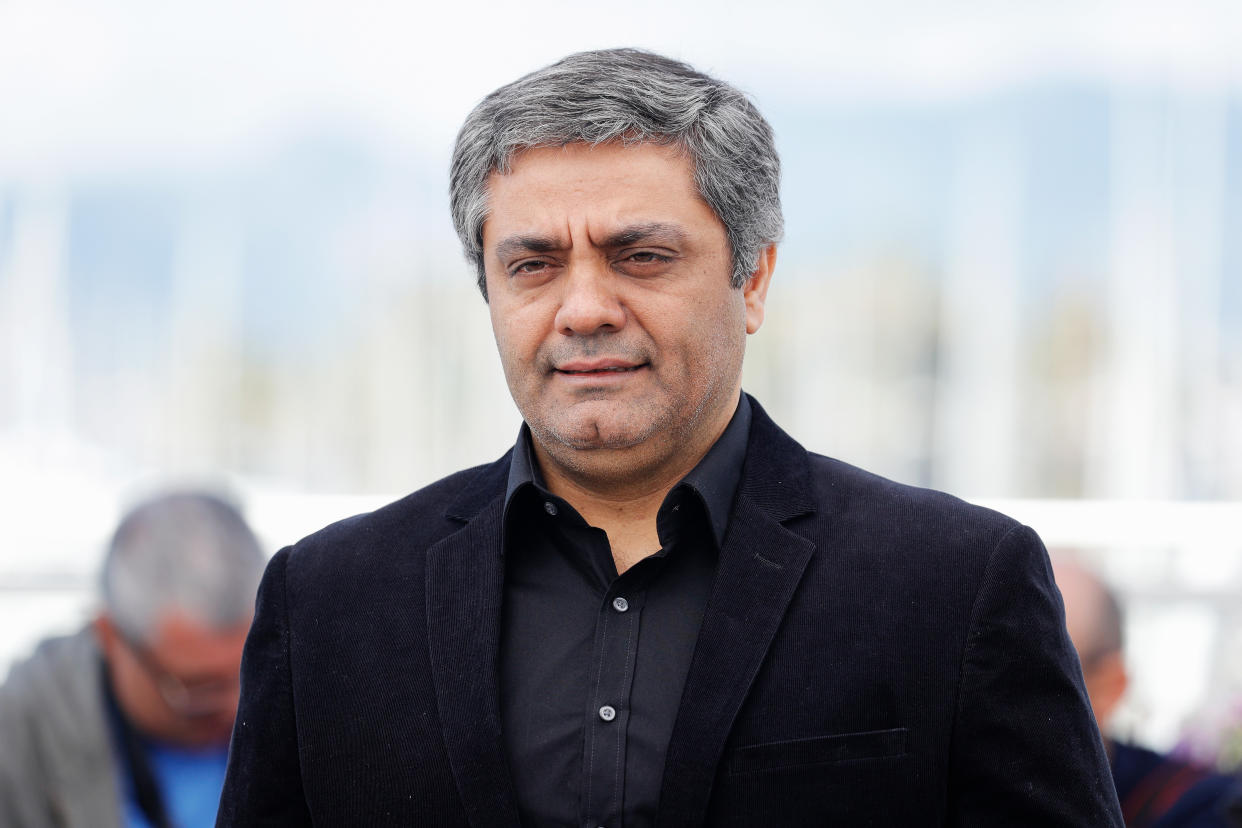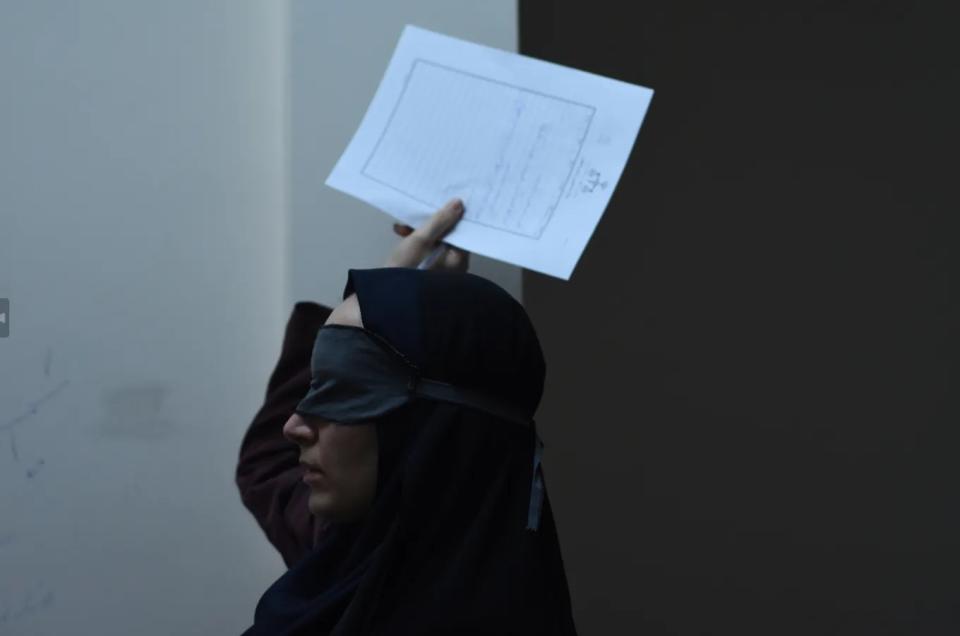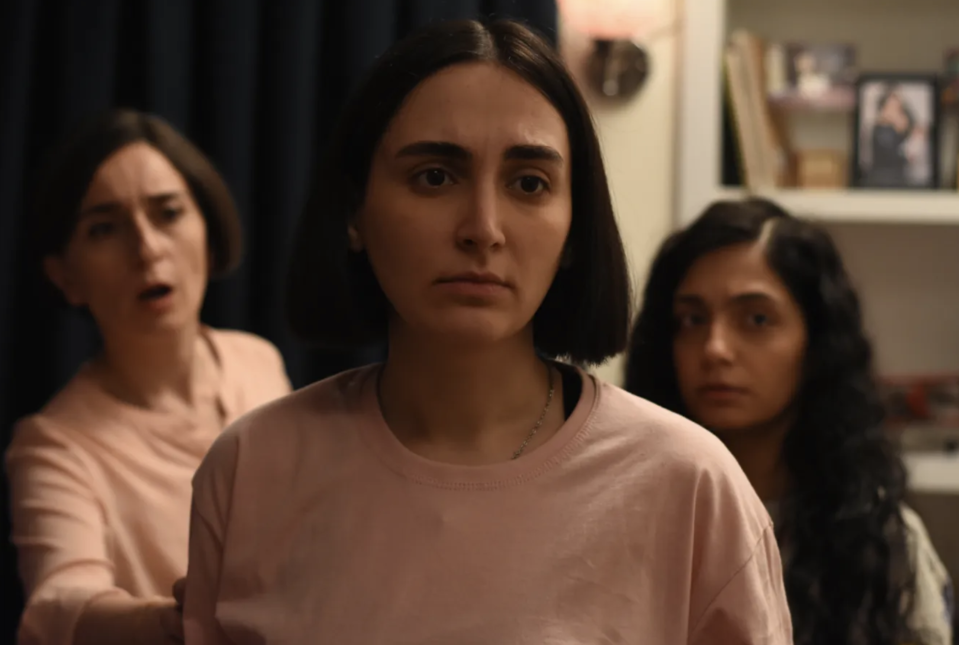Mohammad Rasoulof Made It to Cannes for ‘Seed of the Sacred Fig,’ but His Perilous Journey Out of Iran Isn’t Over

After a perilous 28-day journey fleeing Iran and setting foot in Germany, Mohammad Rasoulof has finally made it to Cannes, safe for now and cautiously eager for the premiere of his fourth Cannes feature, “The Seed of the Sacred Fig,” announced by the festival a month ago as a late addition to the Competition.
The last images he takes away from his home — after just having two hours to make the monumental decision whether to be re-incarcerated for a harsh sentence that might still be extended, or to join the constellation of Iranian artists in potentially permanent exile — are the plants and flowers in his apartment, which he worried would have no caretaker. There was also a certain imposing mountain that he can view from his window. It’s there he can see the wall of Evin Prison, where he was last incarcerated in 2022 after speaking out against the government and in support of other arrested filmmakers.
More from IndieWire
Rasoulof appeared fresh and grateful, even serene, at the Terrasse du Festivals at the Palais doing his first rounds of press in Cannes. But speaking to IndieWire via translator, he said he is completely preoccupied with the safety and well-being of the cast and crew of his film. They were banned from departing Iran and have in recent weeks been harassed by Iranian authorities in lengthy interrogations and issued directives to pressure the festival to withdraw the film.
These are the same actors and collaborators whom he trusted would help keep the production of the film a secret, similar to how his Golden Bear-winning previous feature “There Is No Evil” was also filmed in secret. In fact, one of the key cast members on “Seed,” Soheila Golestani, was imprisoned after participating in the historic “Woman, Life, Freedom” protests that rocked the authoritarian regime starting September 2022, after the brutal death of Mahsa Amini. Everyone understood the stakes and, after the ordeal, the film somehow got finished on time, aided in part by the slow judicial process between the announcement and the finalization of the latest sentence.
Rasoulof, in a statement issued shortly after his arrival in Europe, noted he is fully aware that his situation is not exceptional. Especially given that the judicial system of the Islamic Republic reaches new heights of repression and brutality every day, and all artists, including rappers such as Toomaj Salehi, not just filmmakers, are in danger of persecution.
“The Seed of the Sacred Fig,” about a judge from the Revolutionary Guard Court who turns against his own family when his two daughters join a protest, speaks directly to the latest oppositions and fascist machinations tearing apart Iran. Yet Rasoulof believes that acts of subversion will always surface because the government cannot control and monitor everything.

In the last two days, both the Directors Guild of America and a cohort of international filmmakers have issued statements in support of Rasoulof and other persecuted Iranian filmmakers. The latter group includes Sean Baker and Payal Kapadia, whose films “Anora” and “All We Imagine as Light” respectively, play alongside “Seed” in the 2024 Cannes competition.
During the interview, Rasoulof took out his phone and showed me photos of his beloved plants in his apartment, and of the mountain that has come to hold a greatly vexed meaning for him. As for his plants, his sister has arranged for someone to come in and water them.
This interview, conducted via translator, has been edited and condensed for clarity.
IndieWire: You are no stranger to arrests, bans, and sentences. Can you talk more about the sentence in April? How much did the news about the production of the film lead to the sentencing?
Mohammad Rasoulof: Well, no, this sentence was related to films that I had made before, or things that I had signed. It wasn’t related to this film. I had been through one third of the shooting [on ‘Seed of the Sacred Fig’] when the court finally delivered the sentence. I knew it would arrive one day or the other. And as the eight years of jail was announced, I was just hoping to finish my film. Of course, I could have withdrawn if I wanted to, but I consider making works of art as my right, and there’s no reason why I wouldn’t fight for this right. I decided to carry on working with the hope that just because of the slowness of the process, I would be able to finish. There was an appeals court, so before the sentence was confirmed, I was able to finish shooting at least.
How does this sentence feel different?
I feel in retrospect that that becomes a black box, of tons of information about the system. Interrogations, prisons, courts, censorship, all kinds of restrictions. At some point, … I had to decide whether I would take it with me in prison and try to do something with it there, or leave the country, no matter how difficult the decision it was for me, and open it up.
Very few filmmakers have to make such a difficult decision, whether to leave the country, or stay and go to prison. Can you talk about the emotions you felt in the last days as you made your decision?
I remember when I was in my home and made this decision. I walked around. I have lots of flowers and plants. It is very difficult to bid farewell to your home, to think that you might never see it again. But I did it and didn’t look back.
Something both funny and tragic is that at my home, my window opens on a mountain where you can see the wall of Evin Prison, where I was imprisoned [in 2022]. [Rasoulof shows a picture on his phone of the view from his window.] Every morning, I have this view. If I could fly there, it would be 500 meters, no more. Every morning, I say, “Here are my friends. I’ll be soon with them.” So, what I remember when leaving my home is my last look at the mountain, where I thought I [would have to] go back.

Was there an image or story from the actual 2022-2023 “Women.Life.Freedom” protests in Iran that inspired a scene in the film, or the story of the film?
I just tried to imagine the life of a person like this [the protagonist, who is a judge in the Revolutionary Guard Court] and his family. What do these people feel from the inside? What’s their dilemma? If a person like this wishes to change, sees a different path, but still is stopped from choosing the other path, what is it that stops him? That was my focus, the criteria for what makes him not be able to change.
Was there a lot of secrecy in making this film, and how difficult was that?
It was extremely frustrating because sometimes you cannot get what you want. For hours, I was sitting at the back of the car, just with the monitor, and with the walkie-talkie to talk to my assistant. And it was hard. Filmmaking is difficult in general, but this type of filmmaking is especially difficult.
This is your third time visiting Cannes (and your fourth film overall to play here). Given the trying, unique circumstances of your visit, is there anything you are excited or perhaps nervous about?
I am worried about the cast and crew of the film that are in Iran, and are being harassed and put in danger. I’m really hoping that the festival is going to be vocal … with a loud voice … to support them and to try to protect them as much as possible. At the same time, I’m extremely relieved and excited that the film was finally finished, and that the voice of these people will be heard and their image will be seen.
“The Seed of the Sacred Fig” premieres at the 2024 Cannes Film Festival on Friday, May 24. Neon handles U.S. distribution.
Best of IndieWire
Unsimulated Sex Scenes in Film: 'Nymphomaniac,' 'The Brown Bunny,' 'Little Ashes,' and More
Every Palme d'Or Winner from the Cannes Film Festival, Ranked
The 13 Best Thrillers Streaming on Netflix in May, from 'Fair Play' to 'Emily the Criminal'
Sign up for Indiewire's Newsletter. For the latest news, follow us on Facebook, Twitter, and Instagram.

 Yahoo News
Yahoo News 
